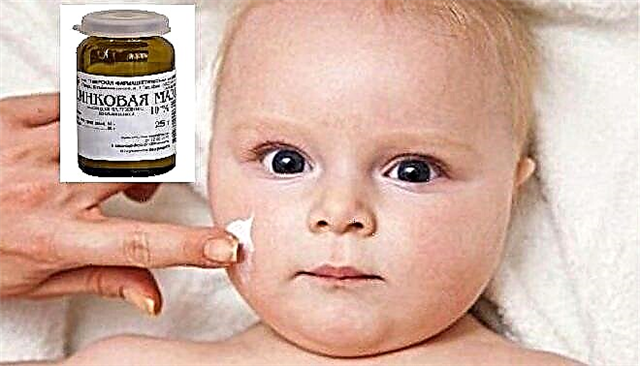
Raising a child is a very important and responsible business. Parents influence how their child will be, what traits will be most developed in him. The future of the child, his attitude to life and aspirations depend on the parents. Therefore, parents need to have knowledge in the field of psychology and pedagogy, because the fate of their future family depends on this.

Excellent student syndrome or perfectionism
For all parents, the child is a pride. They want him to be the best and succeed in everything, including in his studies. And in order to achieve what they want, parents have strict requirements and want to see only excellent grades in their children's diaries. But in this case, parents and their children may be in danger in the form of an excellent student's syndrome (excellent student).
Psychology defines an excellent student's syndrome or perfectionism as a mental state in which a person initially sets himself the highest goals and in any way strives to achieve them, while striving to complete the assigned task extremely ideally, often forgetting about other life's things - for example, entertainment, recreation, food and communication.

Portrait of a child with excellent student syndrome
A child with the following symptoms is sick with excellent student syndrome:
- Self-esteem is unstable. Praise evokes excessive confidence, criticism can cause self-doubt when committing a crime to the next case.
- The desire to get an excellent mark in all ways available to him. The manifestation of deception and lies is possible. A child is able to slander a classmate who answered better, to hide bad grades from parents.
- A zealous attitude towards the success of other children. The child rejoices in other people's failures. So it seems to him that he is getting closer to success.
- Emotionally unbalanced. For example, if parents or teachers do not praise, hysteria begins to the point of tears. The child gets the feeling that no one wants to appreciate his success.
- Inability to overcome simple obstacles on your way. The student is able to stop the task right in the middle of the lesson only because he made a mistake and it seems to him that everything is now gone.
- The child is unable to accept criticism and remarks.
- A child for good academic performance may constantly sacrifice fun and socializing with friends.
- Academic failure can lead to apathy. The child can withdraw inside himself and plunge into a state close to depressive.

The dominant motive in educational activities for a child is the achievement of the highest mark, and in any way, as well as approval and praise from others.
As a child grows up, the excellent student's syndrome develops into perfectionism. Perfectionism is a psychological personality trait with a complex structure.
The main symptoms of perfectionism are:
- The level of claims is above the norm. Super high demands on yourself;
- Highest standards in performing activities with a focus on the "most successful";
- All people are perceived as demanding and critical;
- The person constantly compares himself to his environment;
- Evaluates and plans his actions on the principle of "either all or nothing";
- Attention is fixed on incompletely successful actions.

The desire to do the job perfectly, polishing every detail. Perfectionists continually criticize the level of performance of the task, are very susceptible to other people's words, and are practically unable to enjoy the results of their work because of the belief that it is not done at a very excellent level.
In reality, the constant striving for the ideal often turns into loneliness, lack of normal rest and entertainment, as well as mental illness due to frequent nervous tension.

Causes
There are both congenital and acquired excellent student's syndrome. But it is formed and becomes apparent just in childhood, most often when the child enters school.
A child's excellent student syndrome can develop for several reasons:
- Low self-esteem. Children think that for some reason they are not complete and do everything to level it with a good study.
- An innate need for praise and recognition. Often this is a natural character trait that needs to be identified in a timely manner and try to smooth it out.
- The need to get the attention of parents.
- Fear of punishment. Such children tend to be timid and very disciplined, they do not want to upset their parents or teachers.

How to get rid of excellent student syndrome?
The best treatment for excellent student syndrome is the unconditional love of their children by their parents. Love just like that, because he, a child - because he just is. Such treatment must be permanent.
It is strictly prohibited:
- Compare your child with other children. You can only compare his own results, previous with new ones. For example, pay attention to the fact that he began to succeed, something better than some time ago.
- Reprimand for grades. Even if, instead of an excellent grade, the child brought a bad grade, you should not scold him, find out what you didn’t manage to do and help to cope with a difficult task.
- Be afraid of making a mistake. A mistake is an experience, an opportunity to overcome difficulty, to know oneself. After all, everyone makes mistakes, including you.
- Rate your child by grades. Evaluation is only an intermediate result of a certain time period. And you love your child no matter what, remember about unconditional love. Show it whenever possible.
- Repulse. Even when you are not in the mood to come home, and your son or daughter is running towards you to share the emotions received at school from communicating with classmates, be sure to talk to them. Immediately, while the impressions are so fresh. Later, their excitement about talking to their parents will diminish.
- Burden with tasks. You want the child to be comprehensively developed, for this you enrolled him in all kinds of circles and sections. But studying takes a lot of energy, they may not stay for other activities. Your child is not lazy, perhaps you overestimated his capabilities. Let the child choose for himself where he goes, where he will like, and not you.

Tips for parents
In children, the excellent student's syndrome most likely appears from lack of attention and love. With excellent grades, the child unconsciously tries to earn additional praise from his parents.
When you see a student's unhealthy reaction to their grades, try to show your love openly:
- after all, you need to hug your child more often, for no reason;
- smile at him and look into his eyes when he shares something with you excitedly;
- speak words of love and understanding to your child;
- calmly say that you love him only because you have him;
- spend more time together, do not fence off by referring to work if he needs your help and advice.

If you notice that your child devotes a lot of time to lessons, invite him to go for a walk, invite friends over to visit or visit them.
You should try to replace thoughts about studying with more interesting things for him:
- enroll it in sports or creative sections;
- take walks with the whole family;
- spend more time with him playing board games.

How to beat the excellent student syndrome, see the next video.
What situations a perfectionist may face in the future and how it starts with an excellent student's syndrome, see the next video of psychologist Veronica Stepanova.



